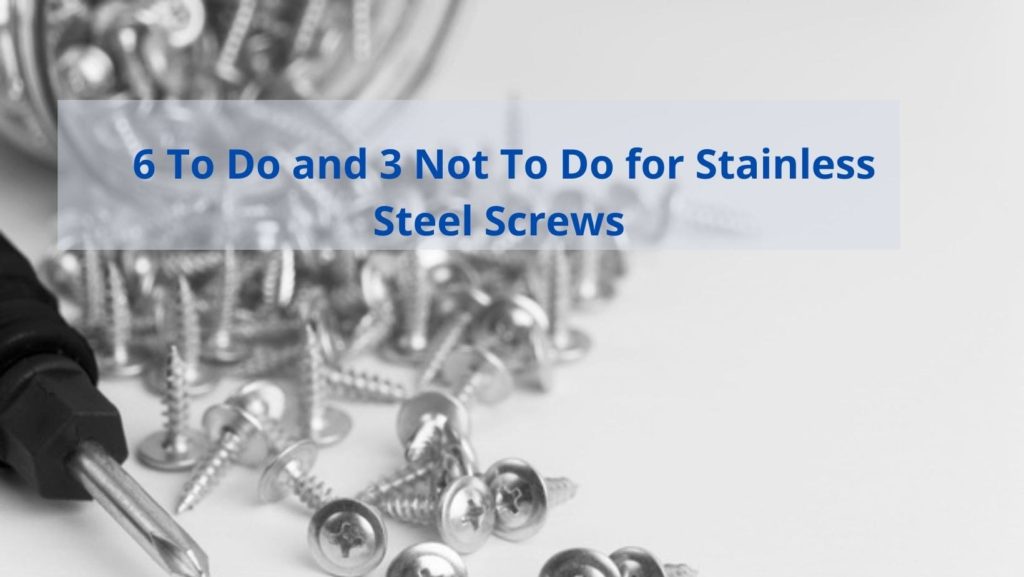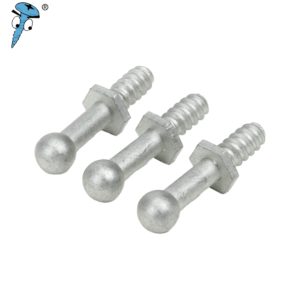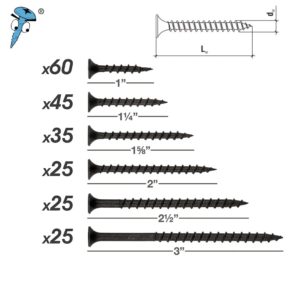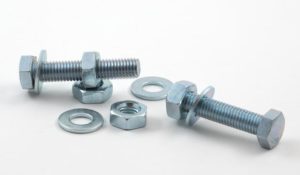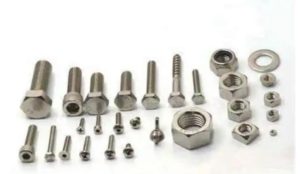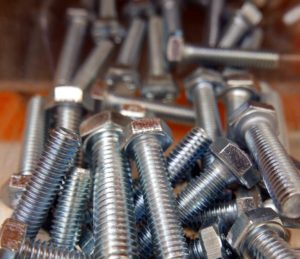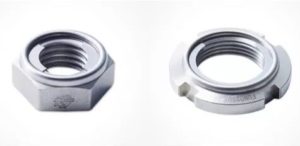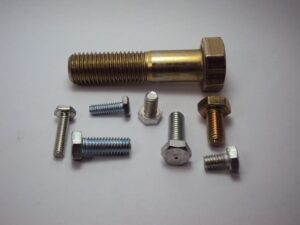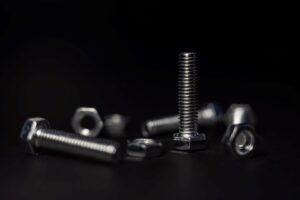Basic Knowledge Summary for Fastener
To help you avoid common mistakes and use stainless steel screws properly, Prince Fastener has made a short guide of 6 do’s and 3 don’ts.
1. Todo: choose the correct grade.
There are many different grades of stainless steel. The two common grades are 304 and 316, with 316 being more corrosion resistant than 304. The rule of thumb is that if the fastener is in a corrosive environment (for example, within 5 km of the coast), 316 is best, especially if the fastener is seen since 316 is less likely to “rust stain” or develop a brown discoloration (see a photo of bracket showing tea stain). The Nickel Institute offers a great design guide for selecting and using stainless steel to help with this problem.
Stainless steel screws
This bracket is 10 meters from the beach. The frame is 304 stainless steel and has shown signs of rusting. However, 316 screws and nuts have performed well.
There are other grades besides 304 or 316 that are specifically suited for different applications. Please see our guide to choosing the correct grade of stainless steel for your fasteners in “Which Stainless Steel is Right for Me?”
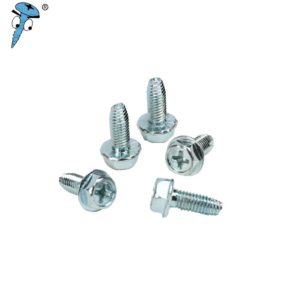
2. Todo: Lubricate the threads.
Veteran stainless steel fastener engineers recommend that all stainless steel threads be lubricated before being assembled to reduce the risk of lock-up of stainless steel screws (this is when the cables lock-up). The most significant risk of galling is on larger threads (M16 and above) and nylon nuts. Therefore, we recommend using Lanotec or nickel anti-seize lubricants.
3. Todo: Choose a suitable surface finish.
The smoother or polished the surface, the better the corrosion resistance. Some stainless steel products have a brushed, satin, or “rough” finish – for example, sometimes on hinges, fittings, downspouts. This type of finish can trap tiny particles (such as salt), which compromise the protective chromium oxide layer on the stainless steel, causing “tea stains” and therefore giving the appearance of rust. If the stainless steel is not exposed to rain to wash off the particles, the situation worsens (see #5 and #6 below).
4. Todo: Consider electropolishing
Electropolishing or passivation (in acid treatment) improves corrosion resistance by thickening the protective chromium oxide layer that naturally occurs on stainless steel. All stainless steel fasteners provided by Prince Fastener are passivated and can also be electropolished upon request.
5. Todo: establish and follow the cleaning plan
The “show” of stainless steel products needs to be cleaned to remove contaminants (such as salt) and thus maintain the appearance of stainless steel. For more information, please see our cleaning guide.
6. Todo: Give due consideration to exposure to rain
It resists corrosion because stainless steel has a naturally occurring protective layer (“chromium oxide”). When contaminants settle on stainless steel, depending on the grade and surface treatment, these can destroy this protective layer, allowing oxygen to react with iron.
In stainless steel causing it to rust. If the stainless steel is exposed to rain, then this should wash these contaminants away and restore the protective layer of the stainless steel.
Therefore, if the stainless steel is to be protected from rain and it is in a corrosive environment, then consider options to improve corrosion resistance: choose a more corrosion resistant grade; a smooth/polished/mirror polish; and electropolishing.
Also, consider a cleaning schedule to remove contaminants. Screws and Nuts
stainless steel self-tapping screws
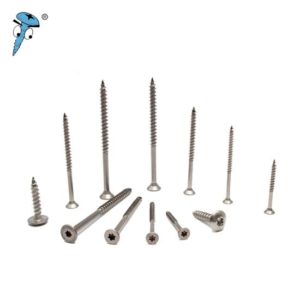
1. Don’t do: Contamination
This is where your tool passes tiny contaminants (such as iron filler). This rusts on the surface of the stainless steel and initiates corrosion. This can also happen when the iron filler of the grinding steel is blown onto the stainless steel.
How can I reduce the risk of contamination?
The driver/screw tip should preferably be chrome vanadium steel.
Allen wrenches should be hardened and chrome plated.
Cutting wheels should be made of aluminum oxide, free of “iron” or “carbon steel,” or marked “for stainless steel.”
Hammers should be high-quality hardened chrome-plated steel or stainless steel.
2. Do not do: cause galvanic corrosion
This is when two different metals come into contact and react and cause corrosion—for example, lead or copper waterproofing on a zinc/aluminum roof. Galvanic corrosion can be a risk when other metals contact stainless steel, and the joint is wet. We recommend investigating possible galvanic corrosion if you have concerns about it. Isolating the metal with Tef-Gel or a nylon/rubber barrier (such as a nylon gasket) is one way to keep the metal separate to reduce the risk of this happening. Note, however, that this can still happen when water flows from one metal to another after one metal may be contaminated by another.
3. Don’t do: buy low-nickel stainless steel
Some proprietary grades with high manganese and low nickel have entered the market and are sold as 304 or 316. Some are even labeled as such. However, these alloys are also very low in chromium and are not suitable for the harsh conditions in Australia – especially the coastal environment.
